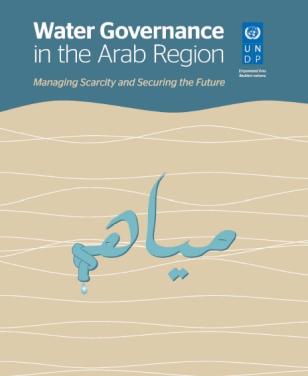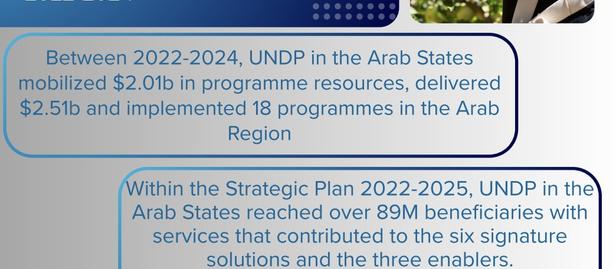Water Governance in the Arab Region
Water Governance in the Arab Region
November 25, 2013
Water challenges can and must be addressed if the Arab region is to achieve the Millennium Development Goals, attain shared prosperity, and reach a future of sustainable human development. Addressing water challenges now can also help strengthen resilience by managing the risk of potential crises that could result from inaction: such as unplanned migration, economic collapse, or regional conflict.
Resolving the crisis will require enduring progress towards political, social, economic and administrative systems that shape the use, development and management of water resources and water delivery in a more effective, strategic, sustainable and equitable direction.
UNDP Regional Bureau of the Arab States, with support from the Swedish International Development Co-operation Agency (Sida), has drawn together experts from a number of Arab countries to produce “Water Governance in the Arab Region: managing scarcity and securing the future”.
The report provides the Arab countries and the international community, donors, and other stakeholders with an extensive understanding of the water situation in the region. In laying out the building blocks of good water governance needed to manage increasing water scarcity, it seeks to strengthen dialogue, raise awareness, and advance progress towards water-related development goals across the region.
The Report calls for:
- Integrated governance approaches which address the links between water and health, education, poverty reduction, and environmental protection, while also balancing the demand for water from different sectors in order to ensure food and energy security.
- A better understanding of the real “value” of water, which takes into account social and environmental costs, as well as the direct financial costs of extraction and delivery;
- Water and sanitation institutions and in co-ordination to improve the efficiency of water distribution;
- Overhauling inadequate and/or weakly enforced legislation so that it can protect scarce water resources better;
- The systematic involvement of diverse stakeholders, including local communities, in decision-making and in the mechanisms necessary to increase the accountability and transparency of public water and sanitation services;
- Support for research, innovation, and data collection, including through stronger regional mechanisms for sharing data and knowledge; and
- Paying greater attention to shared water resource management across national boundaries.

 Locations
Locations





